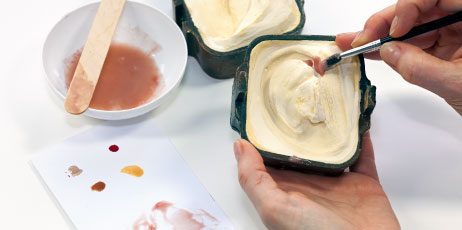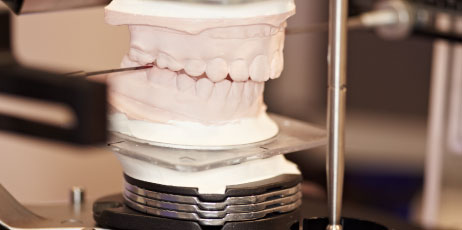South Jersey Wisdom Teeth Removal Surgeons
The South Jersey surgeons at Lanzi Burke have experience with wisdom teeth removal/extraction and other helpful treatments.
Wisdom teeth (your third molars) are the last teeth to come in—and the ones least needed for good oral health. Most people have four wisdom teeth and each tooth can be at a different stage of eruption and position of impaction. They may not erupt, or emerge from your gums, until your late teens or early twenties—if they erupt at all.
Most often, they’re impacted, or trapped in the jawbone and gums, usually because there’s not enough room for them in your mouth. Since wisdom teeth develop over a period of many years, harmful changes in your mouth may be gradual. But these changes could result in sudden and severe pain.
What are the Advantages of Wisdom Teeth Removal?
Like all teeth, wisdom teeth develop inside an opening (socket) in your jaw, protected by bone and gum tissue until they erupt. Over time your wisdom teeth become more firmly anchored in your jaw as their roots lengthen and the jawbone becomes more dense. So, the older you are, the more difficult it is to remove your wisdom teeth.
Alleviate the Problems of Wisdom Teeth
- Gum disease – When a wisdom tooth partially breaks through the gum’s surface, bacteria can get under the flap, causing an infection in the gum.
- Crowding – An impacted or erupting wisdom tooth can push on adjacent teeth, causing them to become crooked or even damaging them structurally.
- Decay – A wisdom tooth that is hard to clean due to its position or because it is partially covered by gum tissue may collect cavity-causing bacteria. This could also lead to decay in the tooth next to it.
- Poor position – A wisdom tooth that grows toward the cheek can irritate nearby tissue. If an erupted tooth is crooked, it may be hard to bite down.
- Cysts – If the sac that holds the crown remains in the bone, it can fill with fluid, forming a cyst that can destroy surrounding bone.









